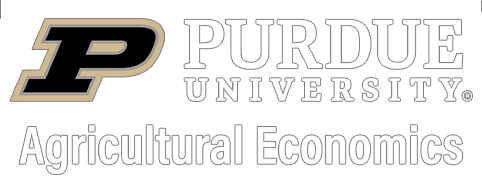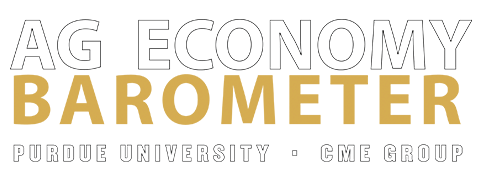May 15, 2019
Assessing Procurement and Marketing Skills
As farms continue to consolidate it becomes increasingly important to assess a farm’s management skills. At a certain farm size, it is no longer easy or feasible for the manager or managers to wear every management hat. How does the management team determine when to focus on professional development, delegate management tasks among mangers, and seek outside assistance? This is the fifth article in a series of articles pertaining the assessment of management skills. The topic of this article is the assessment of procurement and marketing skills.
Procurement and Marketing Skills Assessment
Table 1 presents important procurement and marketing skills. Skills listed include meeting with major input suppliers to define needs, options, and plans; keeping input suppliers informed enough about the operation so that they contact the operation when opportunities arise; allocating time to evaluate alternative methods of purchasing inputs, pricing farm products, and marketing farm products; creating strategies to obtain access to input and output markets; documenting procurement and product pricing performance; and understanding how to negotiate with landowners, lenders, and suppliers. Each farm operator should rank their ability with respect to each skill using a 1 to 5 scale with 1 be relatively weak and 5 being relatively strong with respect to that skill. The idea behind checklists such as that presented in table 1 is to assess whether a farm has a skills gap, which is defined as the difference between skills that a farm needs and the skills of their current workforce (operators and employees). Conducting a skills gap analysis helps a farm to identify skills that will be needed to become more efficient and expand. It can also be an important input into hiring programs, employee development plans, or hiring outside consultants.

The checklist in table 1 does not include a final tally score, nor does it address tradeoffs in various skill or ability areas that may lead to success. Rather, the checklist helps farm operators evaluate their skills and abilities in areas critical to long-term financial success. As farm operators fill out the checklist, they should try to determine which of the skills listed are most essential to improving efficiency and expansion plans.
Obviously, procurement and marketing are vast topics. The discussion below will focus on two aspects of procurement and marketing. First, we will discuss the importance of management plans. Second, we will briefly describe the importance of managing marketing risk.
Marketing Plans
A marketing plan is an important component to a farm’s business plan which should also include production, financial, and personnel management plans. Steps involved in developing a marketing plan include understanding markets, deciding what and how much to produce, computing the costs of production for each enterprise, deciding when and how to price, determining where to price and when and how to deliver, deciding whether to use marketing services, and understanding that mistakes will be made (Olson, 2011). Let’s elaborate on the last step. Some individuals are so afraid that they will make marketing mistakes that they are reluctant to market their crops prior to harvest or sell livestock before the end of the production period. These individuals may also have a tendency to hold grain in storage too long. Though it may not seem like it, these strategies do represent a marketing plan, just not a very good plan.
As part of developing a marketing plan, it is important to assess your risk tolerance and evaluate whether marketing skills need to be updated. Upgrading marketing skills is certainly an on-going process and should be part of an operator’s lifelong learning strategy. It is important to note that a farm’s marketing plan may involve hiring one or marketing services.
Managing Marketing Risk
Agriculture operates in a global market so unanticipated forces anywhere in the world such as weather or government policies impact input and output prices. Procurement and marketing risk is any market activity or event that leads to variability of products sold or inputs purchased (Crane et al., 2013). If not managed, procurement and marketing risk can also increase the likelihood of low net returns which is often referred to as downside risk.
There are numerous tools available to manage procurement and marketing risk. Crane et al. (2013) briefly discuss storage, cash sales, deferred payment contracts, fixed price contracts for deferred delivery, basis contracts, deferred or delayed price contracts, minimum price contracts, hedge-to-arrive contracts, hedges, options, contracted production, marketing cooperatives, and direct sales. Given the increasing importance of production contracts, further discussion of these contracts is warranted. Production contracts often assure a reliable cash flow, but also limit upside product price potential. Also, production contracts often involve counterparty or relationship risk which can be defined as the risk associated with contract default.
Concluding Comments
Assessing procurement and marketing skills is an important part of benchmarking farm performance and figuring out where improvements may be needed. If the operators on the farm identify management areas which are not currently being addressed, they will need to determine whether someone is going to get up to speed with regard to these areas or outside help is going to be sought to address weaknesses.
Failing to develop a marketing plan may lead to a situation in which the farm only sells their products when they need liquidity. This is rarely, if ever, a prudent marketing plan. Having said that, it is very important that a farm’s marketing plan be closely tied to production, financial, and personnel plans. This of course includes aligning a farm’s marketing plan with crop insurance decisions, and making sure that the marketing plan is coordinated with cash flow needs. Finally, make sure that your marketing plan is feasible and aligns with your risk preferences.
Citations
Crane, L., G. Gantz, S. Isaacs, D. Jose, and R. Sharp. “Introduction to Risk Management: Understanding Agricultural Risks.” Extension Risk Management Education and Risk Management Agency, 2013.
Olson, K. Economics of Farm Management in a Global Setting. Hoboken, New Jersey: Wiley, 2011.
TEAM LINKS:
PART OF A SERIES:
RELATED RESOURCES
Margaret Lippsmeyer, Michael Langemeier, James Mintert, and Nathan Thompson segment U.S. farms by farm resilience, management practices, and producer sentiment. This paper was presented at the Southern Agricultural Economics Meeting in Atlanta, Georgia in February.
READ MOREUPCOMING EVENTS
We are taking a short break, but please plan to join us at one of our future programs that is a little farther in the future.




